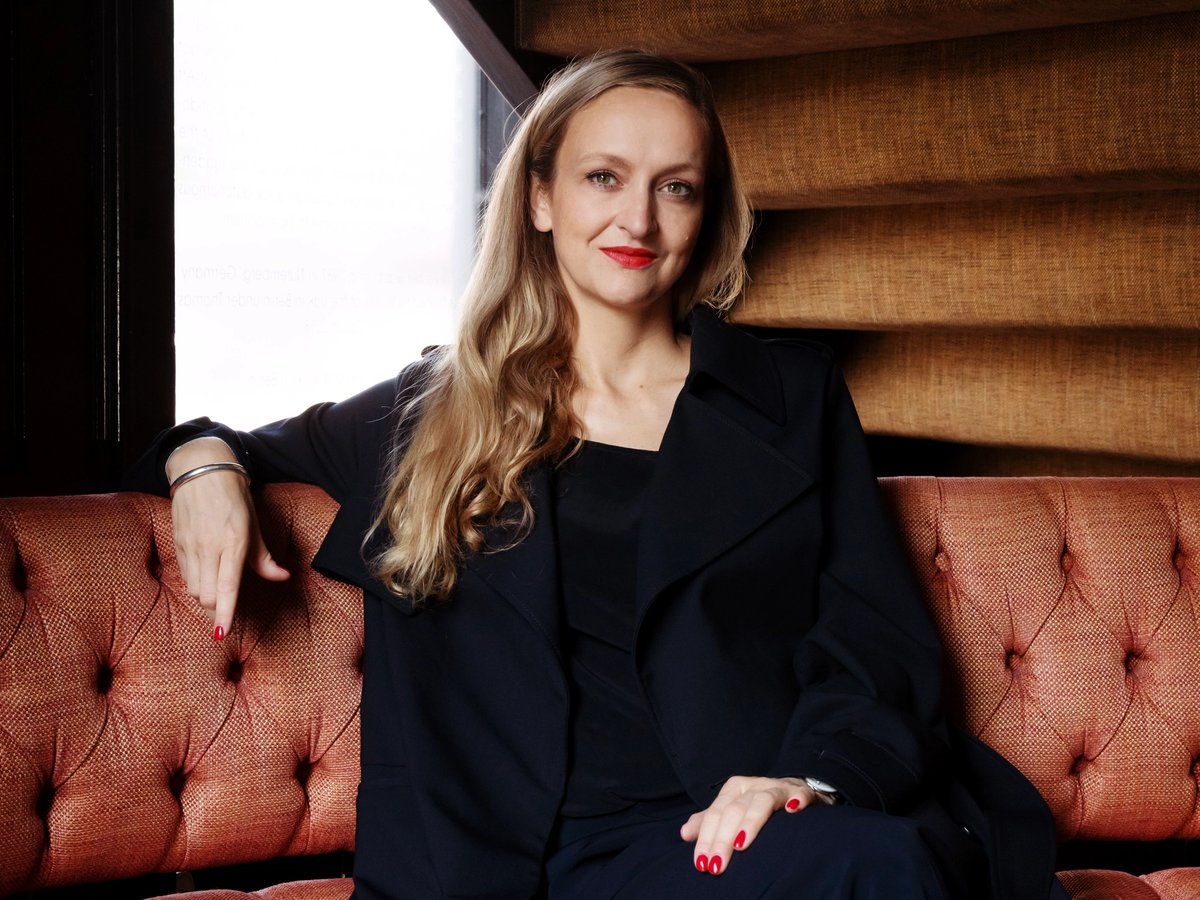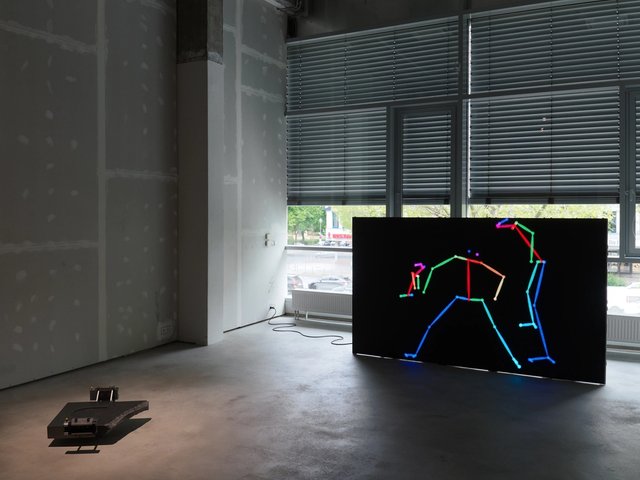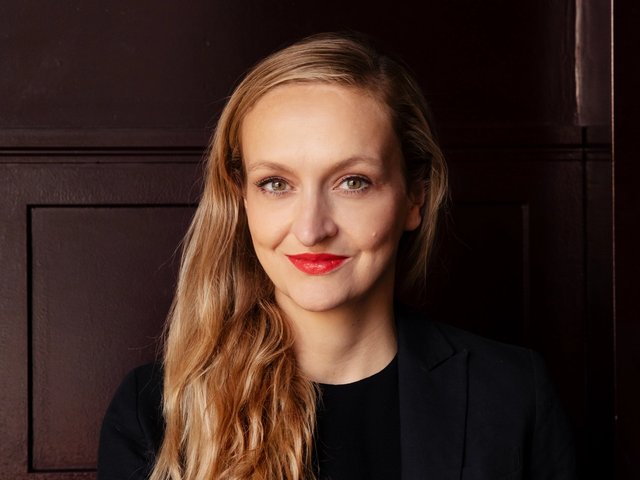Amid the city-wide demonstrations and jubilation of 1 May Labour Day, Gallery Weekend Berlin (GWB) opened its 21st edition (until 4 May). The German capital’s leading commercial art event this year includes 52 galleries, with presentations by Anne Imhof at Buchholz, Phung-Tien Phan at Schiefe Zähne, Cyprien Gaillard at Sprüth Magers and Marianna Simnett at Societe.
Since November 2023, the event has been directed by Antonia Ruder. But while the last edition of GWB still bore the mark of her predecessor, Maike Cruse (now director of Art Basel), this year more clearly reflects Ruder’s vision.
In this role, Ruder faces not only the long-standing challenges associated with organising a city-wide event for more than 50 strong-willed participants and thousands of visitors, but also newer issues that have emerged within Berlin's rapidly shifting cultural landscape. The Berlin city-state government last year approved €130m in cuts to its culture budget—yesterday, the city's senator for culture, Joe Chialo, resigned from office, citing the cuts as a key reason. Meanwhile state censorship on subjects related to the Israel-Palestine conflict continues to imperil Berlin's reputation as an open-minded and tolerant creative hub.
Below, Ruder discusses her vision for GWB and how it is navigating this tricky terrain.
The Art Newspaper: How have you put your stamp on this year’s GWB?
Antonia Ruder: "Gallery Weekend Berlin is a successful format and that's largely thanks to the participating galleries, their outstanding exhibitions, and the support of all the artists. I wanted to expand the format by adding new elements that offer deeper insights—opportunities to meet the artists, to understand their ways of thinking and working, and to explore why collecting art can enrich one’s life. This year, we launched a series of talks in cooperation with the Neue Nationalgalerie, started a podcast that offers a look inside artists’ studios, and organised public tours."
To some you might seem an unconventional choice as GWB director. Your recent professional background, working for the renowned Berlin theatre Schaubühne, saw you focus on bridging art and theatre, rather than embedded in the commercial art world. How has your experience informed your leadership of GWB?
"My background in bridging art and theatre, combined with my knowledge of Berlin, has taught me how to create meaningful dialogue between disciplines, creatives, and audiences. While I was already familiar with the art market, I’ve always approached it as something that also needs context, conversation, and connection."
In a blow to the city, Berlin’s state cultural funding was recently cut by €130m, with a further €15m planned next year. With institutions struggling to make up the shortfall, is the commercial sector stepping in to help? Could an event like GWB aim to address this issue and boost cultural institutions?
"It’s true that the recent cuts to cultural funding have hit Berlin hard—especially smaller institutions and independent spaces. While the commercial sector alone can’t fill that gap, it does have a role to play. The galleries have always aimed to support the broader artistic ecosystem of the city. Through partnerships — like this year’s collaboration with the Neue Nationalgalerie—we try to build bridges between private initiatives and public institutions. We see GWB as a platform that brings visibility, dialogue, and support to Berlin’s diverse art scene. In times like these, that mission becomes even more important."
GWB held its first edition in 2005, when the art fair model was ascendant and relatively unchallenged. Today, many galleries are searching for alternatives. Do you think the gallery weekend model can provide a more attractive substitute for art fairs at a time of rising costs and environmental concerns?
"Gallery Weekend offers an important and compelling alternative format that operates alongside the traditional fair-driven art market. What makes it unique is the focus on the gallery space itself — on experiencing art where it was meant to be seen, in direct dialogue with the artists, curators, and the city. At a time when rising costs and environmental concerns are making the art world rethink certain structures, formats like GWB can offer a slower, more sustainable, and context-rich way of engaging with art."
Berlin’s reputation as a free-spirited city has been challenged due to growing censorship from the German state around the subject of Israel-Palestine. As a partially state-funded event (GWB has received funding from the the Senate Department of Economic Affairs, Energy and Public Enterprises since 2020), does this sponsorship limit what you can say about certain issues, specifically around Palestine, Israel and anti-semitism?
"No, there have been no directives or limitations placed on us by public funding bodies. The participating galleries are entirely independent in curating their programmes and choosing which artists to present. Gallery Weekend Berlin is committed to artistic freedom and open dialogue. As a decentralised format, it thrives on the diversity of voices and perspectives, and curatorial choices that reflect the complexity and richness of Berlin’s cultural scene. That independence is fundamental to the identity of the galleries programme."
Gallery Weekend Berlin was established as a way to draw internationals in to the city. Some groups are now calling for a Strike Germany, in which culture workers boycott Germany over its stance on the Israel-Palestine conflict. What does GWB look like in this context?
"Gallery Weekend Berlin’s mission to draw the international art scene to Berlin has stayed true and successful for over two decades. Its role is even more relevant and needed now, in its climate of extreme division."




